MercoPress. South Atlantic News Agency
Economy
-
Thursday, December 24th 2009 - 09:57 UTC
Venezuela imposes power cuts and announces network of “Socialist” shops
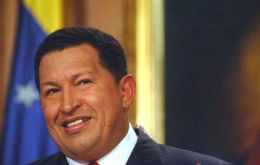
Venezuela has imposed sweeping power cuts on industry and businesses in order to save its limited energy resources and avoid mass blackouts. The government said the cuts were because of falling water levels at the Guri Hydroelectric dam, which supplies much of the country's power.
-
Thursday, December 24th 2009 - 09:49 UTC
Another austerity year ahead for Cubans announced Raul Castro
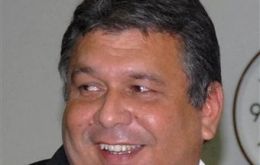
The Cuban economy grew by only 1.4% in 2009, far from an initial forecast of 6%, Economy and Planning minister told parliament this week. Marino Murillo said that Cuba’s exports fell by 22.9% this year, while imports were down 37.4%. Prospects for 2010 are modest: 1.7% growth.
-
Thursday, December 24th 2009 - 09:26 UTC
Minutes show Bank of England unanimous vote on December decisions
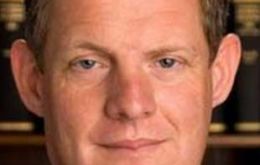
All nine members of the Bank of England's Monetary Policy Committee (MPC) voted to hold interest rates at its December meeting. Minutes from the meeting also showed that the MPC was unanimous in voting to maintain the £200bn quantitative easing (QE), or asset buying, programme.
-
Wednesday, December 23rd 2009 - 15:44 UTC
Uruguay cuts basic rate and eases credit to sustain US dollar
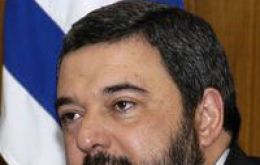
Uruguay surprised markets with a 175 basic point rate cut to 6.25% from 8.00% amid expectations of lower inflation. The central bank also decided to reduce the inflation target fluctuation for the next 18 months from 3 to 7%, to 4% and 6%.
-
Wednesday, December 23rd 2009 - 15:37 UTC
Several Argentine economy indicators rebounding
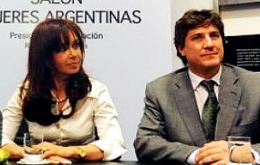
Argentina’s November primary fiscal surplus increased sharply over a year ago, 46.2%, reflecting a better performance of the country’s economy, pointed out Economy minister Amado Boudou confirming what President Cristina Fernandez de Kirchner had anticipated on Monday.
-
Wednesday, December 23rd 2009 - 15:23 UTC
Brazilian Central bank ready to “preventively” increase rates in 2010
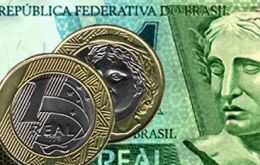
Brazil’s Central bank is ready to act preventively to fight inflation after it forecast growth in 2010 will accelerate to the fastest in three years, triggering above-target inflation, said Mario Mesquita, the bank’s Economic policy director.
-
Wednesday, December 23rd 2009 - 15:10 UTC
US expands slower than expected but fourth quarter should see 4% growth
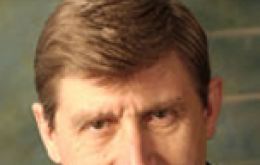
The latest economic data shows the US economy grew more slowly than first thought. US Commerce Department reports that GDP expanded at a 2.2% annual rate from July to September, down from an earlier estimate of 2.8%.
-
Wednesday, December 23rd 2009 - 09:51 UTC
UK economy shrinks 0.2% in third quarter; longest ever recession
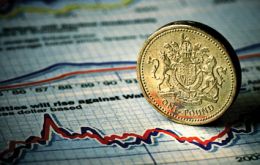
The United Kingdom has now lost 6% of its entire economic output in its longest ever recession, official figures have confirmed. The current slump is on a par with the 1980s recession which blighted former premier Margaret Thatcher's early years in power.
-
Wednesday, December 23rd 2009 - 08:28 UTC
Paraguay economy contracts 0.3% in third quarter confirming strong recession
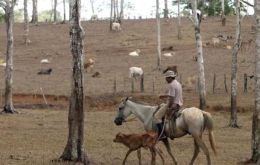
Paraguay’s GDP in the third quarter contracted 0.3% compared a year ago confirming the country’s recession, according to the latest report from the Central Bank. However the performance was an improvement compared to the drop of previous quarters, which “could be anticipating the recovery of the economy for the coming year”.
-
Wednesday, December 23rd 2009 - 08:15 UTC
Third credit rating agency downgrades Greek sovereign bonds
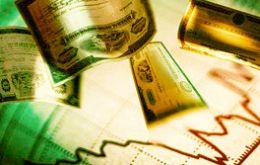
A third credit ratings agency has downgraded Greek government bonds over concerns about the country's ability to reduce its high levels of debt. Moody's is the third of the three major international agencies to downgrade Greece, following similar moves by Fitch and Standard & Poor's.
